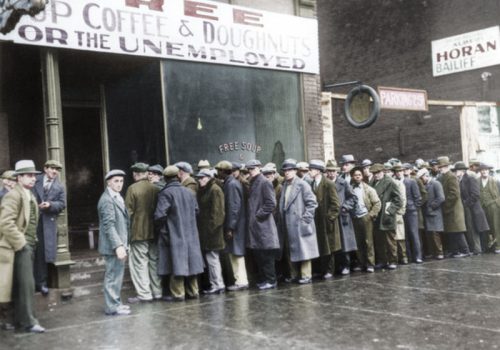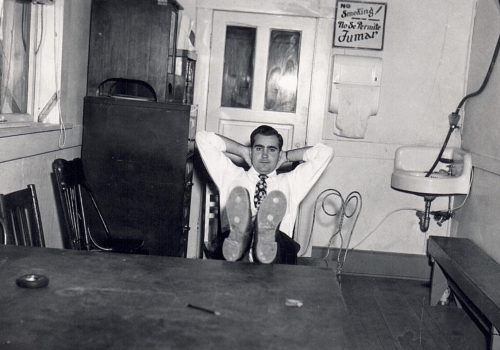James Cash Penney: Faith and Business
It might sound like an oxymoron to some to link religious faith with business. Yet this is precisely what one entrepreneur did in the early twentieth century, James Cash Penney, Jr. J.C. Penney allowed his faith to lead his business. As such, he developed a business model that sought to encourage entrepreneurship in others, to sell quality products, and to give back to his community.
Penney grew up in a religious family as the 7th of 12 children. His father was a minister and instilled a Christian ethic that would be the foundation of J. C. Penney’s business model. In the Journal of Business Ethics, Mary Ellen Oliverio notes that Penney started out working as a clerk and was disheartened by the underhanded methods employed by the business owners he worked for. For instance, writes Oliverio, one shop owner would mark the same product with two different prices to trick customers into thinking one of the coffee tins was better than the other.
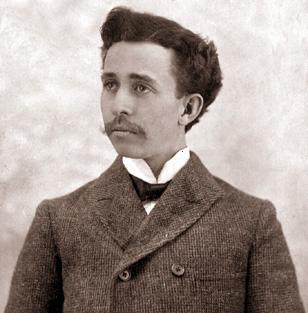
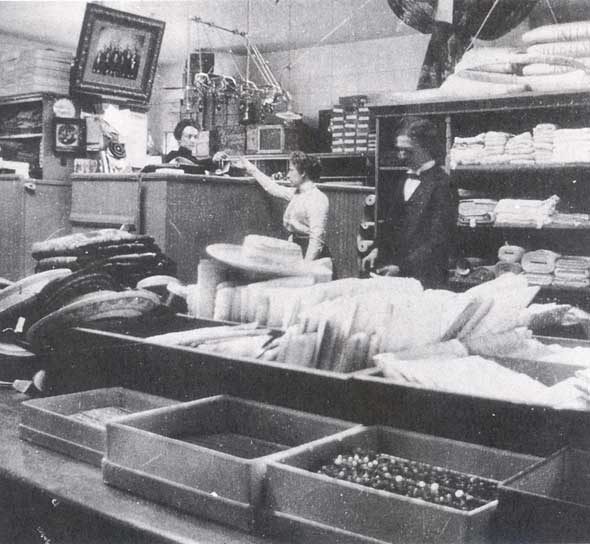
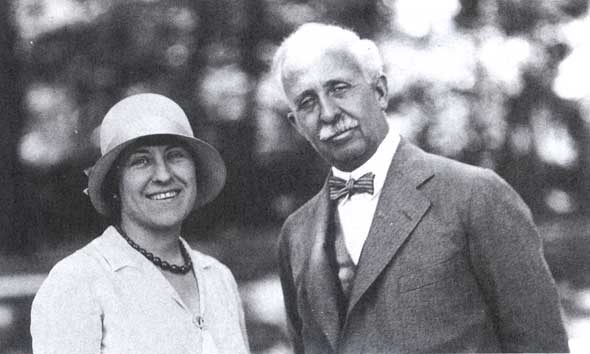
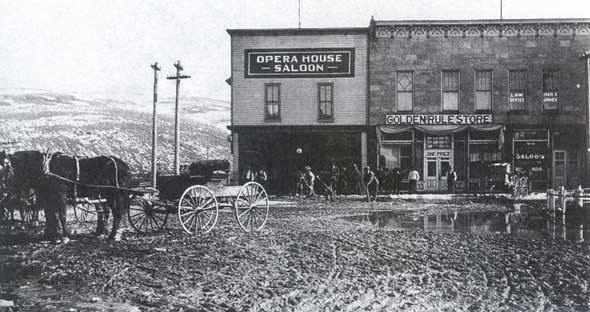
Changing times
After a failed butcher venture, due to sticking to his moral high ground and refusing to ‘bribe’ wealthy customers, James Cash Penney managed to find employment with Thomas M Callahan and W. Guy Johnson as a clerk in their Golden Rule Store in Wyoming. Along with his religious upbringing, the owners of the Golden Rule Store paved the way for Penney’s future business model: “Do unto others…” These owners were impressed with Penney’s work ethic and took him on as a manager and partner.
On this, Mary Elizabeth Curry comments that by 1902 Callahan, Johnson, and Penney had become equal partners in a new Golden Rule Store near a coal-mining town in Kemmerer, Wyoming. Within the first year, the store had sold nearly $29,000 worth of goods and made over $8,000 in profits, states Curry. Penney seeing the success of the store and the risk that Callahan and Johnson took on by making him a partner, etched in him another aspect of his future business model: to build up fellow entrepreneurs.
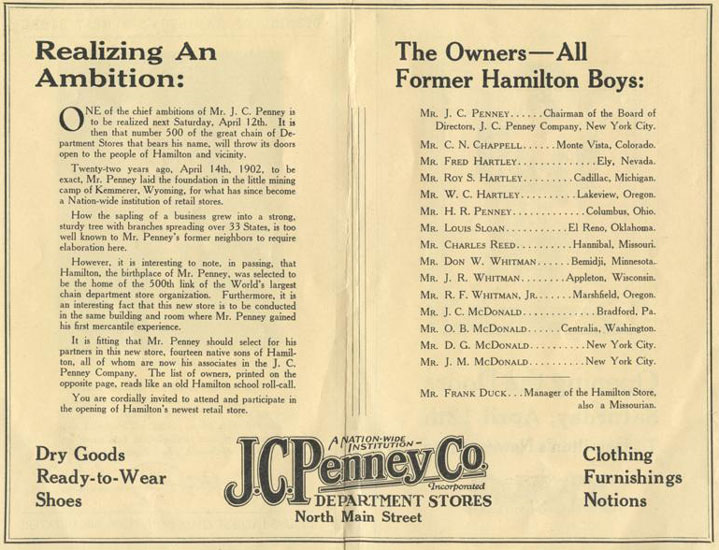
“love your neighbor as yourself”
(Leviticus 19:18, NIV)
When his partners sold their business shares to him in 1907, Penny began developing new stores in Utah and Idaho. Following with his new business model, he took on former salesclerks of his as partners; one such salesclerk was 23-year-old Earl Corder Sams. Oliverio writes that by a 1913 meeting, Penney presented his business code of ethics, “The Penney Idea,” that all stores must live up to. This code of ethics reflected that found in the Pentateuch to “love your neighbor as yourself” (Leviticus 19:18, NIV) and quoted in the words of Jesus as the second greatest commandment (Matthew 22:36-40).
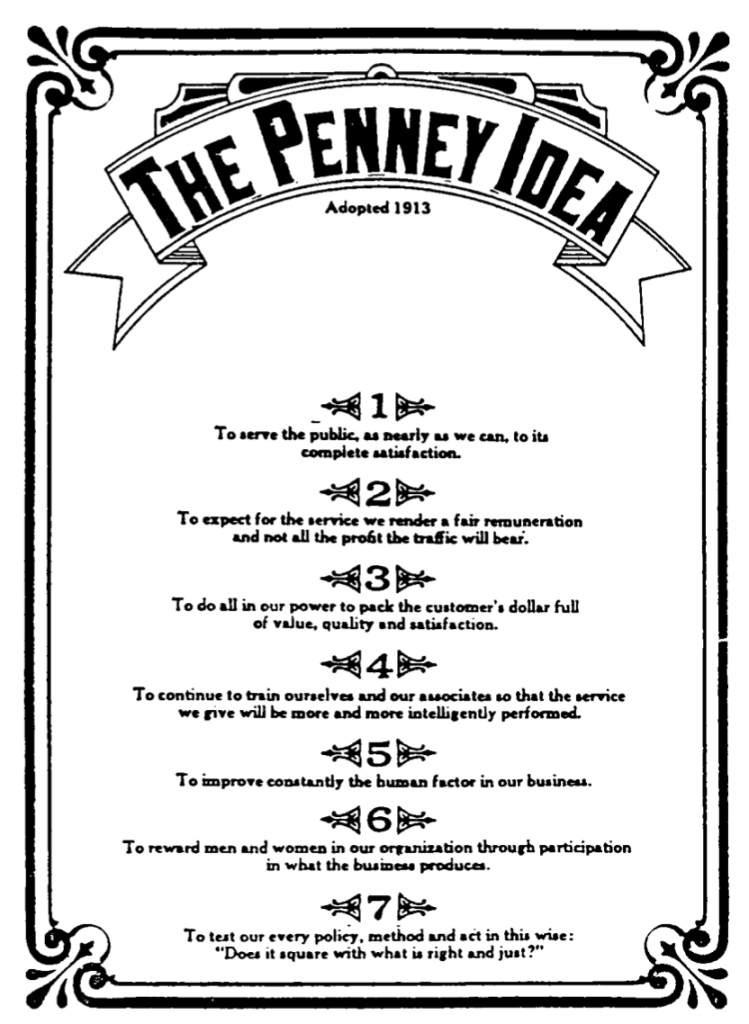
Penney not only created an atmosphere where entrepreneurship was encouraged in others but where the customer’s satisfaction was emphasized. Curry notes that within ten years, Penney had over 170 stores and sales of $14 million. In the same year, 1917, Sams took over as company president, and Penney moved into planning how to move forward with JC Penney’s company. Isadore Barmash writes that Penney’s credo of the Golden Rule “was a simple one of humane conduct toward both employees and customers.”
Giving back to the community
Barmash further notes that Penney was active in his community and gave of his time and money to many organizations, including the YMCA, Boy Scouts, and various Christian organizations. He goes on to note that in 1926 Penney “founded a million-dollar Memorial Home Community near Jacksonville that he dedicated to his parents…for aged religious workers and their wives.” Additionally, Penney valued education and helped fund a public library in his parents’ names as well.
James Cash Penney not only gave to these organizations and more but gave to his employees as well, offering “profit-sharing contracts.” Penney wanted to build up entrepreneurs that would provide quality products and services to their communities. Curry notes, “A successful store manager received one-third of his store’s profit due to the classified stock system,” and “managers could also invest their profits in opening new stores and earn more profits. This policy resulted in the company’s rapid expansion to nationwide status between 1913 and 1929.”
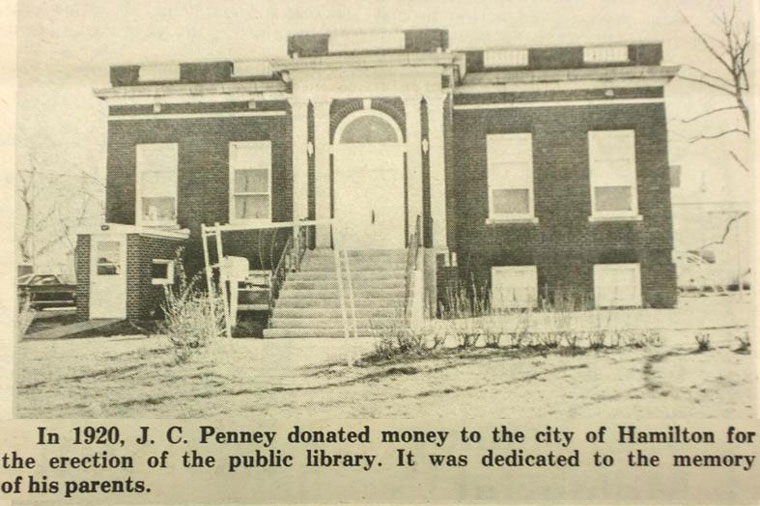
Being led by his faith, Penney grew his early 20th-century business on the Golden Rule, loving one’s neighbor as oneself. From personal experience, He sought to encourage entrepreneurship in others by taking on hardworking employees as partners, offering them profit-sharing contracts. Moreover, he considered customers’ needs as valid and sought to provide them with quality products for their money. Finally, James Cash Penney desired to build up the community around him not just through excellent service and commodities but through investing in education and religious organizations that would bolster up a new generation of ethically minded people and support those who have given their lives to spreading the gospel.
Work Cited:
Barmash, Isadore. “J. C. Penney of Store Chain Dies; Built Business on ‘Golden Rule’: J. C. Penney, Founder of Chain Stores, Dies at 95.” New York Times (1923-), Feb 13, 1971. 1. ProQuest Historical Newspapers.
Curry, Mary Elizabeth. “SMU. J.C. Penney papers, 1800-2000,” TARO Texas Archival Resources Online, https://txarchives.org/smu/finding_aids/00012.xml
Oliverio, Mary Ellen. “The Implementation of A Code of Ethics: The Early Efforts O: JBE.” Journal of Business Ethics 8, no. 5 (05, 1989): 367. ProQuest.
Cover Image: Image courtesy of JCPenney.


